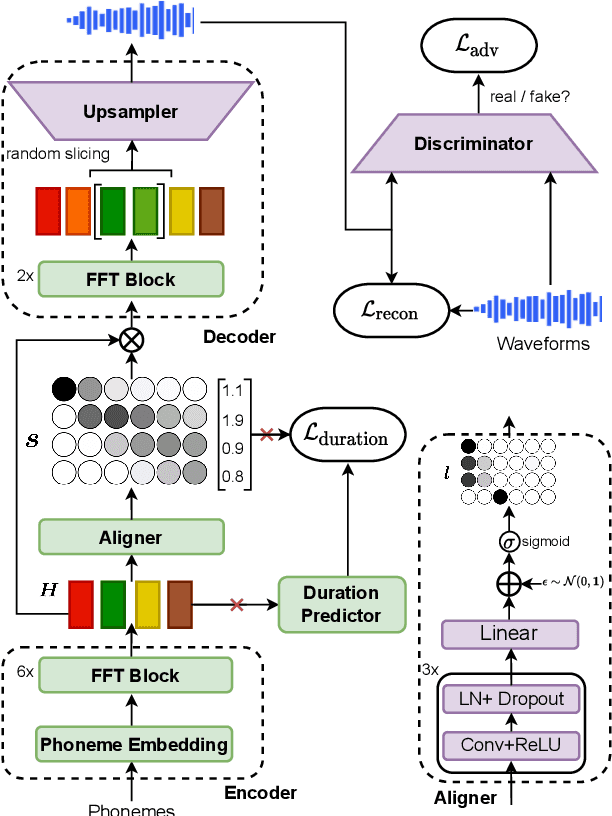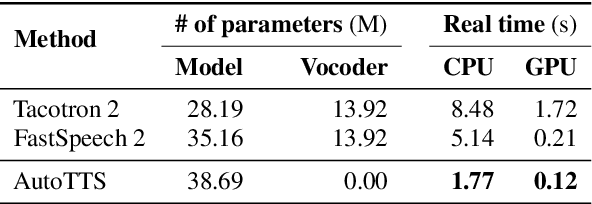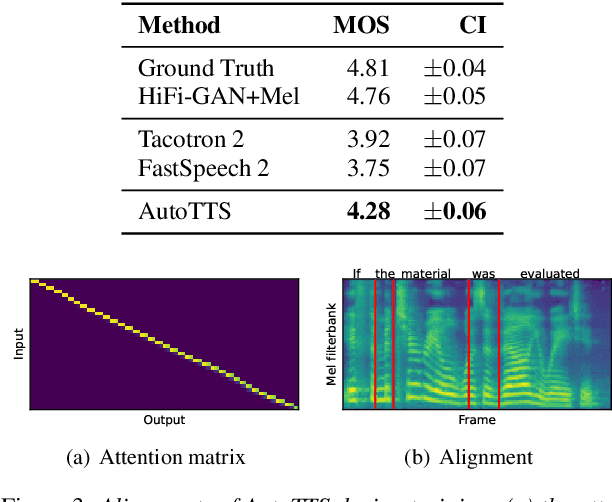Differentiable Duration Modeling for End-to-End Text-to-Speech
Paper and Code
Mar 21, 2022



Parallel text-to-speech (TTS) models have recently enabled fast and highly-natural speech synthesis. However, such models typically require external alignment models, which are not necessarily optimized for the decoder as they are not jointly trained. In this paper, we propose a differentiable duration method for learning monotonic alignments between input and output sequences. Our method is based on a soft-duration mechanism that optimizes a stochastic process in expectation. Using this differentiable duration method, a direct text to waveform TTS model is introduced to produce raw audio as output instead of performing neural vocoding. Our model learns to perform high-fidelity speech synthesis through a combination of adversarial training and matching the total ground-truth duration. Experimental results show that our model obtains competitive results while enjoying a much simpler training pipeline. Audio samples are available online.
 Add to Chrome
Add to Chrome Add to Firefox
Add to Firefox Add to Edge
Add to Edge